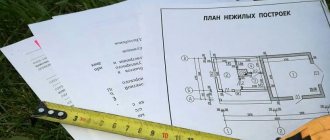Any real estate transaction requires the signing of a purchase and sale agreement.
In the case of purchasing a summer house, it is recommended to first make sure that the seller has ownership rights to the house.
After all, dachas are often built independently. But not only the seller must prepare a set of documents. There are certain requirements for the buyer.
Legal regulation
The purchase of a summer house with a plot of land is fully regulated by the Civil Code of the Russian Federation. For example, in Art. 223 determines the moment of transfer of real estate or other property into the ownership of a new user. And in Art. 454 fixed the definition of a purchase and sale agreement.
In accordance with the Civil Code, the parties must enter into a purchase and sale agreement in writing. After which it is necessary to register the transfer of ownership to the buyer.
Additionally, you can familiarize yourself with the order of the Ministry of Economic Development No. 540 “On approval of the classifier of types of permitted land use.” The regulation lists the categories of land and permitted work. This will help determine the necessary documents at the stage of drawing up the contract.
For example, it is prohibited to build houses on land intended for personal farming in the field. The dacha on the site is a self-built building that has no documents. It is not recommended to buy such property.
What the law says
Any transactions related to the purchase and sale of property of various types (regardless of whether it is movable or immovable, of special value or not) are regulated by Chapter 30 of the Civil Code of the Russian Federation.
It is this normative act that pays special attention to the legality and legality of the transaction, the rules for concluding an agreement, as well as the comprehensive protection of the rights and interests of the parties to the agreement.
Issues of transfer of ownership of land plots are resolved
Land Code, and in this normative act, due to its structure and constant changes, one specific chapter is not highlighted - consideration of issues of ownership of land and registration of transactions for the purchase and sale of this type of real estate is carried out in Articles 37 (purchase and sale), 15, 25 -26 (transfer of ownership of land), etc.
That is, these two regulations are key in regulating the implementation of transactions for the purchase and sale of land plots.
However, there is one more Federal law that you should pay attention to when preparing to enter into such an agreement.
This is Federal Law No. 122-FZ “On State Registration of Rights to Real Estate”, which talks about the rules for registering ownership of a particular property.
In particular, the law says that quite often, in order to recognize a transaction as valid, notarization of the agreement will be required. However, such a requirement is expressed for several types of transactions, which, in turn, are quite often concluded in relation to land.
Thus, notarization will be required if an agreement is concluded with the owner, who is represented by a legal entity.
In addition, transactions with shares of property must also be certified by a notary, regardless of whether part of a plot suitable for the construction of a residential building is being sold, or one on which only agriculture can be carried out.
Another case of mandatory notarization of a concluded transaction is the purchase and sale of real estate carried out in the interests of a person who has not reached the age of majority or is incompetent for various reasons (for example, recognized as such by a court due to a serious illness).
Papers from the buyer
When purchasing a summer house with a plot of land, the buyer is subject to minimum document requirements. To buy a dacha with a plot of land, one passport is enough.
However, other documents may be required:
Application for a transaction addressed to the chairman of the SNT, if the dacha is part of a gardening partnership.
The application is written after the conclusion of the contract and registration of property rights. Its main purpose is to replace the name of the seller of the dacha with the name of the buyer.Membership in the gardening partnership will be transferred to the new owner, and he will be able to participate in meetings.
- A document confirming solvency if the dacha is purchased on credit/mortgage. It is enough to provide a bank statement or loan agreement.
- Lease contract. If several buyers apply for a dacha at once, priority is given to the one who previously used the property under a lease agreement.
- Notarized consent of the spouse for a buyer who is married.
The requirement to have the latest document is controversial. The obligation to provide spousal consent existed until 2013, when the sales contract had to be registered. However, in 2021 only the transfer of ownership is registered. Corresponding changes were made to the Civil Code.
In 2015, the Ministry of Economic Development issued an order with a list of documents required for the purchase of land. Among them was the consent of the second spouse when purchasing land. However, in the same year, this order was declared illegitimate by the court. Until now, registration authorities can require the written consent of the second spouse.
Note! Even if the purchase and sale agreement is registered in Rosreestr in the husband’s name without the wife’s written and notarized consent, the spouse has the right to half of the property. It is jointly acquired, unless otherwise specified in the marriage contract.
What documents will you need to stock up on?
The list of documents that both parties will need to prepare when concluding a contract for the sale and purchase of a land plot looks quite impressive for each of the parties. At the same time, you will need to repeatedly contact government agencies for their production.
The seller will have to prepare the following documents:
- Passport (or any other identification documents) in the original and a certified copy (in order to fully identify the seller and exclude the possibility of violating the law through forgery);
- Certificate of ownership of the plot that will subsequently become the subject of the contract;
- Documents confirming the legality of this certificate;
- Cadastral documents for the plot, confirming the assignment of a cadastral number to it, as well as, if carried out, documents confirming the results of land surveying of a specific plot;
- Certificates from the relevant authorities confirming the absence of debts (for example, tax) and possible encumbrances on a specific site;
- Consent of the spouse (for individuals) to enter into a transaction (it will be required in any case, regardless of whether the land was acquired during an officially registered marriage or before it), since the sale of this resource can significantly affect the well-being of the family;
- Consent of the guardianship and trusteeship authorities (if the interests of minor family members will be affected during the transaction);
- Refusal of all other family members (if they have the right of priority stay) to conclude a transaction in a notarized form.
For the buyer, the list of documents is slightly smaller, but its preparation will also take quite a lot of time.
So, the buyer will have to prepare:
- Any identification document (for the purpose of identifying the buyer) in the original and a certified copy;
- Application for concluding a transaction (drawn up in two copies - one is transferred to the seller, and the other to Rosreestr);
- Consent of all interested parties in the execution of the transaction (spouse, children over the age of fourteen) in the case of registration of the plot as shared ownership with the allocation of shares for each, even minor, participant in the transaction; Consent of the guardianship and trusteeship authorities (since a large amount of money is spent from the family budget, which can negatively affect the standard of living of minor family members);
- Documents confirming the possibility of paying the entire purchase price to the seller (for example, a copy of the loan agreement issued by the bank to the buyer, indicating the loan amount);
- In case of purchasing a plot with the help of maternity capital, it will be necessary to provide documents from the Pension Fund of the Russian Federation confirming the right to use such capital to pay for the purchased plot.
Thus, the buyer must also prepare a fairly significant list of documents, but they must carry a guarantee of the solvency of this party to the contract, since otherwise the transaction will not take place.
What documents are needed from the seller?
You can only sell property that you own. Therefore, the seller must confirm his rights to the dacha, which means the set of documents is quite large.
A citizen has the right to sell a dacha located on someone else’s property. The new owner will have the right to use the land on the same basis as the previous one.
The seller must present:
- USRN extract for the house and plot;
- cadastral passport and land plan;
- land surveying documents;
- paper confirming the acquisition of property rights (sale and purchase agreement, gift, inheritance);
- certificate of no debt;
- consent of the spouse, including the former, to the sale of land.
A certificate of ownership can be attached to this kit. However, in 2021 this is not necessary, because... Just like the cadastral passport, an extract from the Unified State Register is replaced.
Among the papers is the spouse's consent to the sale. It must be notarized. If the buyer is not required to have this document today, then the seller is required to do so. If the seller received the dacha while he was married, but was divorced by the time of resale, then the consent of the ex-spouse is required.
Exceptions will be:
- availability of a court decision on the division of property;
- existence of a marriage contract;
- gratuitous acquisition of a summer house with a plot (inheritance, donation).
Important! The seller bears all expenses for preparing the documents. Debts on utilities and payments for membership in SNT are also recommended to be closed before concluding a purchase and sale agreement.
What is the procedure for buying from an owner?
If, in the process of acquiring land from the state, a potential buyer first had to submit an initial application, then, at his own expense, issue a cadastral passport for the plot, and only after that was it possible to conclude a purchase and sale agreement with him through an announcement and bidding, then when purchasing from owner, the procedure is somewhat simpler in terms of the number of stages and consists of the following steps:
- Search for the most suitable option for a site that meets the requirements that the buyer puts forward for it (for example, in the case of choosing a site for individual housing construction - the passage of communications nearby for the purpose of their subsequent introduction to the site, as well as a developed infrastructure that allows you to use the maximum benefits of civilization available in this area ). You can find such a plot with the help of a realtor (in their database of land plots for sale, you can select the plot that best suits the buyer’s requirements) or by independently studying all available advertising resources that contain advertisements for the sale of a particular plot. However, when choosing a plot, you need to pay attention to the price (for example, a plot for individual housing construction cannot be cheap if all communications exist on it, and a capital building cannot be located on agricultural land).
- A preliminary meeting with the owner of the plot to discuss the entire process of the transaction and its terms (for example, resolving the issue of the price of the plot for final indication in the text of the contract, discussing possible encumbrances on the plot, etc.).
- Concluding a purchase and sale agreement and registering it with the Rosreestr authorities in order for it to enter into legal force. At the same stage, the contract is notarized if the law requires such an action (for example, one party to the contract is a legal entity).
- Registration of a certificate of ownership of the acquired plot by the new owner.
Thus, the procedure for concluding a land purchase and sale agreement with the owner (regardless of what category the land belongs to) looks quite simple.
However, the main difficulty in it lies in the correct preparation of all the necessary documents that will help give the transaction a legal appearance and will not allow third parties to challenge it.
Contract for the sale and purchase of a country house with land
A lawyer will help you draw up a contract for the sale and purchase of a dacha with a plot of land. He will take into account the individual characteristics of the transaction and explain all points to the parties.
The standard agreement contains the following clauses (the names of sections and their sequence are preserved):
- Representation of the parties. This clause is untitled in the contract.
Here the seller and buyer declare their roles. Petr Alekseevich Ivanov, born December 12, 1990, passport series and number 1111 222222, hereinafter referred to as “Seller”, and Maria Vasilievna Petrova, born April 30, 1984, passport series and number 2222 333333, hereinafter referred to as “Buyer” enter into an agreement about the following. - Object of the contract . This section describes in detail the property for sale. The exact address of the house is indicated, as well as the cadastral number of the plot. Additional characteristics of the objects are also indicated here. For example, if in addition to the house there is an outbuilding on the site, it must also be indicated in this paragraph. You can even specify the number of garden trees.
- Rights and obligations of the parties . The Civil Code provides that after the sale, the new owner has the right to enjoy all the material benefits of the property. However, it is recommended to stipulate in the contract that the seller transfers the plot along with the house and other property. And the buyer undertakes to accept the property and make payment within the agreed time frame.
- Price . It is recommended to indicate a separate cost for the dacha and the plot. It is not advisable to write a low price, because... in case of termination of the contract, the buyer will not return all the money spent.
- Payment method . The document must indicate how the money will be transferred to the seller. In the case of purchase by installments or credit, these circumstances are also stated in this section. For example. The Buyer undertakes to deposit 500 thousand rubles into the Seller’s account No. 111111111111 within 3 business days after signing the Agreement.
- Date, signature and information about the parties to the transaction.
The simplified purchase and sale agreement does not need to include information about ownership of the land and plot, absence of debts, etc.
At the end, you need to make the “Appendix” item and list the papers on the seller’s side . The agreement itself is drawn up in 3 copies - one for each party and one set for Rosreestr.
Reference! It is also recommended to draw up a transfer and acceptance certificate for the site.
Pros and cons of buying land from SNT
What are the pros and cons of purchasing land from SNT? They can only be assessed in comparison with other categories of land plots.
The main purpose of land plots is SNT, DNP and individual housing construction. They differ in the purposes of their use.
Plots in the DNP are purchased in a non-profit partnership for dacha construction, individual housing construction - for the construction of a house for permanent residence. SNT lands are used only for growing agricultural products for their own purposes.
What other differences between these categories of land:
- On land for individual housing construction, it is allowed to build a house with a height of no more than 3 floors, while on plots from a dacha partnership and a gardening partnership it is impossible to build a permanent structure suitable for permanent residence.
- For members of SNT and DNP, plots are allocated on agricultural lands far from populated areas, while land for individual housing construction is always within a city or village.
- There is a high probability that the authorities themselves will build roads and necessary communications to the sites for individual housing construction. Whereas the citizens themselves need to take care of the improvement of the lands of SNT and DNP.
- In a house built on land for individual housing construction, you can register with your whole family, while the owners of buildings in SNT and DNP are deprived of this opportunity.
Among the main advantages of purchasing land in SNT are:
- the SNT plot is valued much higher than a similar one in the DNP, since the land on it is of higher quality (in terms of soil fertility);
- plots of land in ecologically clean areas are usually allocated for the formation of SNT;
- it is not necessary to build a house or cottage on the land of the horticultural partnership; all of it can be used for growing fruit and vegetable crops;
- the cost of land in SNT is an order of magnitude lower than a plot of similar size for individual housing construction.
But purchasing land for SNT is not without its drawbacks.
Thus, such a purchase is not suitable for those citizens who would like to register in a house they have built. On such a site you can only build garden houses for seasonal use.
Although the Constitutional Court in its decision sided with gardeners and allowed them to register in houses located on agricultural land, in practice it is almost impossible to exercise such a right.
Any building on SNT land will have the status of a garden house, even despite
complexity of the design. This will not allow you to sell it at an adequate price if necessary. Such a house is less liquid than construction on individual housing construction lands.
Another disadvantage of purchasing horticultural land is the difficulty of raising borrowed funds for such a purchase. Mortgage programs with this purpose are presented in a few banks and usually require higher interest rates.
Finally, if the owner wants to build access roads and communications to the site, he will have to pay a considerable amount of money for this out of his own pocket. Local authorities are unlikely to engage in improvement of such lands.
What cannot be demanded?
Previously, complete sets of documents from the seller and buyer were indicated. The buyer may additionally request an extract from the house register to confirm that no one except the seller is registered at the dacha.
The same certificate can be obtained from SNT if the site is not privatized. Here you can clarify the existence of debts to the current owner, but no more.
The buyer has no right to demand extracts from meetings of owners . This information is closed only to current plot owners. It is also impossible to request the consent of other members of the SNT to sell the site. Privatized land does not require such permits.
How to draw up a contract
There are currently a sufficient number of purchase and sale agreements, and for most of them there are universal samples that can be freely downloaded from the Internet.
However, for all texts of such agreements there is a list of sections regulated by civil law that must be included in the document.
These sections include:
- Preamble (contains information about the date and place of conclusion of the agreement, as well as about the parties participating in the transaction, including indications of the documents on the basis of which they act);
- Subject of the agreement (a specific plot is described, indicating its address and cadastral number, area and the most important physical characteristics);
- Contract price (not only the specific value is indicated, but also the mechanism for its formation - from the cadastral value or by the market valuation method);
- Payment procedure (is there an advance payment when paying for a purchase, how are mutual settlements carried out between the parties, to which accounts is the money transferred);
- Rights and obligations of the parties (including the timely transfer of funds to the seller, as well as the cancellation of possible encumbrances if the buyer properly fulfills his obligations);
- Force majeure circumstances (not only force majeure circumstances, but also possible options for their resolution, if this depends on the parties to the contract); Details of the parties (including indication of the addresses of the seller and buyer, passport details, bank accounts, etc.).
A sample contract for the sale and purchase of a land plot from the owner can be downloaded here.
In cases where, when agreeing on an agreement, the parties decided to make annexes to the agreement (in the form of a copy of the cadastral passport, cadastral plan or survey act), they are indicated separately and there must be references to them in the text of the agreement.
Letter of credit when purchasing real estate - find out everything about it! Full information about the tax when renting out an apartment in our article.
Are you looking for a profitable mortgage program for yourself? You will find an interesting option here.










